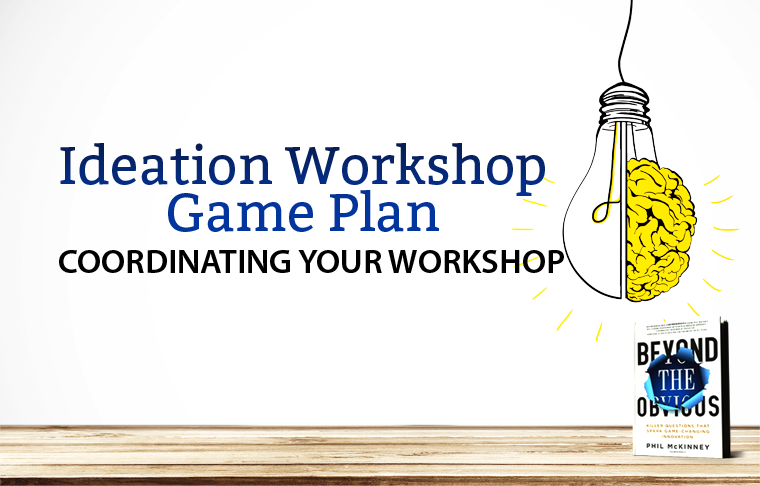Ideation Workshop Game Plan
So what do you need to know as the leader of an ideation workshop? A workshop has multiple elements—participants, Killer Questions, and so on—but at the end of the day, the quality of the ideas directly relates to your ability to create a highly functional, highly effective group. In the following s

So what do you need to know as the leader of an ideation workshop? A workshop has multiple elements—participants, Killer Questions, and so on—but at the end of the day, the quality of the ideas directly relates to your ability to create a highly functional, highly effective group.
In the following series of posts I’m going to walk you through the way I set up and oversee my workshops. First, I’ll provide a general game plan that you can use for your own workshop, and then I’ll dive a bit deeper to help explain each step in detail.
But before we jump into how you actually run an effective ideation workshop, I want to point out that there are two different scenarios. For the most part, I work with big organizations. The workshops I run have multiple participants, and there are representatives from all the relevant divisions present. However, this system is equally valuable to a small business or an individual entrepreneur.
Don’t be discouraged if you are a one or two-person operation. I’ll give you ideas for how to maximize your workshop throughout this section. One suggestion I would make if you are on your own is to form your own “executive board.” Find a great group of people who are either connected to your business in some way (your lawyer, your accountant, angel investors)—people whose business savvy and experience you respect, or simply wise friends whose opinions you seek out anyway. Get two to five people involved and passionate enough that they’ll participate in your Innovation Workshop. It’s perfectly possible to walk this road alone, but it’s easier with a little help. Don’t be afraid to ask for it.
Ideation Workshop Timeline
- Two to three weeks prior
- Recruit group members
- Decide on your area of focus Pick 1 to 3 Killer Questions and assign Killer Question homework
- Set date for workshop two weeks after homework assigned
Day of
- 9:00–9:30 Brief overview
- 9:30–10:30 Share industry and company assumptions and rules
- 10:30–12:00 Discuss Killer Questions and share the results of the homework
- 12:00–1:00 Lunch
- 1:00–3:00 Get ideas up on board 30 min
- Generate ideas
- 40 min posting/sharing
- 50 min grouping of ideas
- 3:00–4:00 Break
- 4:00–5:00 Rank ideas
- 5:00–5:30 Set follow-up session for group charged with making presentation of best idea(s)




